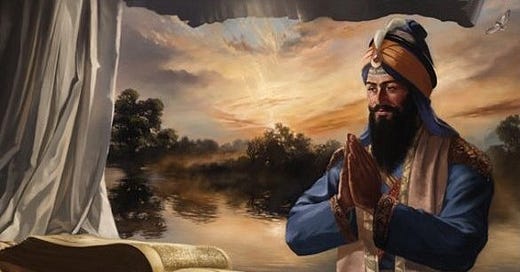As my previous post was The dangers of guruism, I would be amiss if I didn’t point out that Unitarian Universalism has a guruism problem.
As UU lacks a central theology, its members and leadership sometimes replace it with political and social ideologies. Religious-like thinking is inherent in human psychology, and, even with atheists and agnostics, it can get channeled into politics and social ideologies.
In an earlier post, "Has the Unitarian Universalist Association become a cult?", John Eichrodt, a retired lawyer and UU member in France, framed the issue as follows:
"In my opinion, our open theology invites a recurring pathology of 'guruism' in our fellowships and congregations. Why? Because our UU group dynamics sometimes tend to replace the theological or spiritual role of our communities. When this happens, members sometimes replace their spiritual quest by loyalty to guru-type leaders."
Some of UU’s modern gurus include Ibram X. Kendi, author of How to Be an Antiracist, Tema Okun, author of Fifteen Traits of White Supremacy Culture, and Robin DiAngelo, author of White Fragility. Notably, DiAngelo's book White Fragility is published by Beacon Press, which is a publishing imprint of the UUA. The UUA profits handsomely from guruism, and some UUs joke that Robin DiAngelo is UU’s new Patron Saint and the church’s new theology is "Kendiangeloism."
Kendi and DiAngelo present their writings as dogma. Kendi has stated that disagreeing with his ideas is racist, while DiAngelo argues that disagreeing with her is “fragility” and a desire to uphold white supremacy. This dogmatic approach using self-serving circular arguments is like religious fundamentalism, where any dissent or questioning is depicted as not just wrong but a moral failing.
Within the church, many ideologues treat Kendi, DiAngelo, and Okun's work as gospel, insisting that others wholeheartedly agree with it. Those who disagree or express different viewpoints are often subjected to ad hominem attacks, labeled as racist, fragile, rightwing, or defenders of white supremacy, and sometimes even pushed out of their congregations.
The problem with "Kendiangeloism" is not just that it isn’t objective truth worthy of being treated as gospel, but that much of it is nonsense. Kendi's work is criticized for being simplistic and for advocating for authoritarian measures, while DiAngelo's work has been criticized for its racial stereotyping and for being counterproductive to diversity efforts. Tema Okun recently retracted her paper Fifteen Traits of White Supremacy Culture.
Why Robin DiAngelo-style anti-racism trainings are counterproductive
Tema Okun decries the misuse of her ‘White Supremacy Culture’ list
How to Be an Anti-Intellectual by Coleman Hughes
Even if Kendi and DiAngelo offer valuable insights, the dangers of guruism remain. It is crucial to promote critical thinking, diverse views, and debate within UU communities, recognizing that no single person or perspective has the whole truth.
The UUA and its ideologues go even further off the guruism cliff by insisting that entire racial and other minority groups are inherently "truth-tellers" whose expressed “lived experiences” cannot be questioned. This notion—that the color of one’s skin or other immutable characteristic makes one an oracle of truth whose subjective expressions are beyond critique—is not only false and bigoted but also condescending to minorities.
Moreover, when they say minorities are to be treated as gurus, they mean only minorities who agree with their progressive politics and postmodern victimhood ideology. The expressions and “lived experiences” of minorities who hold different viewpoints, such as Glenn Loury, Bari Weiss, and Irshad Manji, are dismissed and characterized as inauthentic.
The issue here isn't that some UUs follow gurus. The issue is that this dogmatism and guruism are being pushed from the top down by the UUA, seminaries, ideologues in positions of power, and indoctrinated ministers.
,
Related reading:
The True Believers: Unitarian Universalism is in Danger of Becoming Just Another Church
Unitarian Universalism’s Fad-Hopping Problem
.




I agree that 'Kendiangeloism' (a marvelous neologism!) is the "theology" behind the "social justice" efforts of the UUs. The question that I would have for Mr. Cycleback and others is - Is there a way out of this for UUism? Or are they stuck being a political action group masquerading as a church?
"Kendiangeloism" was one of the reasons I left the UU church.
David, have you read this by Jeff Maurer?
https://open.substack.com/pub/imightbewrong/p/its-hard-to-accept-that-robin-diangelo